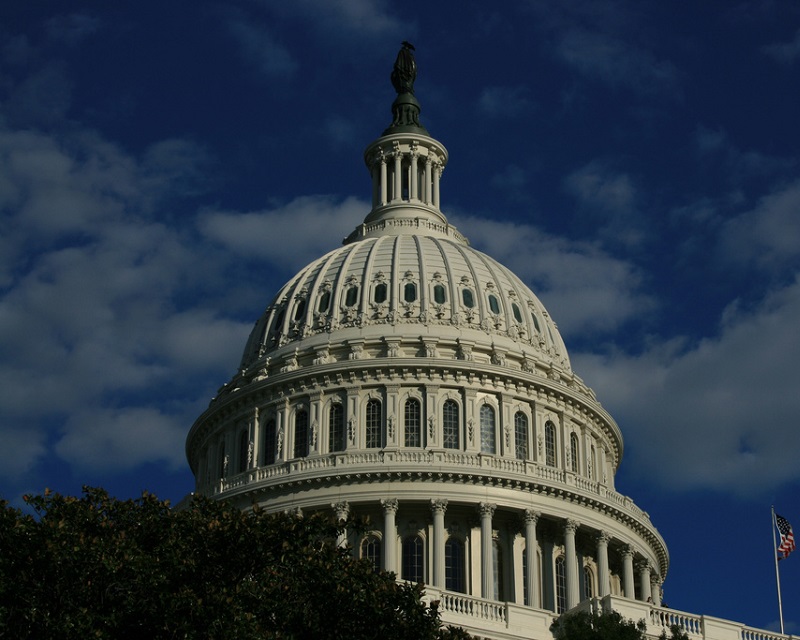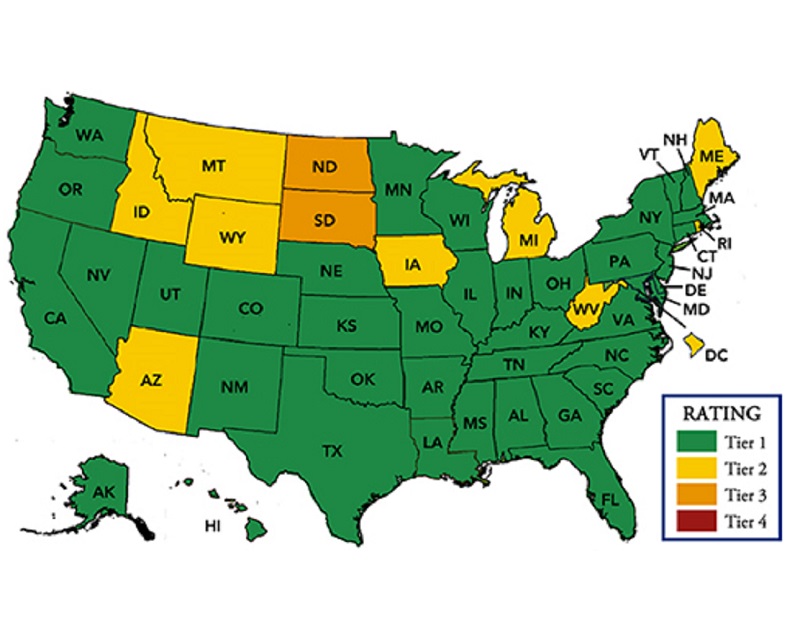Human trafficking does not exist in a vacuum but rather is enabled by underlying systems – both tangible and intangible. These include economic, legal, social, political and other systems as well as racism and discrimination. For example, current systems of business registration makes it easy for traffickers to hide their financial interests while certain dimensions of the immigration system in the United States creates an extremely vulnerable class of legal, temporary workers. Businesses ranging from hotels to banks to social media platforms are all part of what makes human trafficking possible, and profitable. Understanding these systems, and the scope of trafficking within them, is the first step toward making them slavery-proof.

Public Policy
Polaris works with allies to shape, support and share innovative state, federal and local laws and policies that are driven by data, based on survivor experience and focused on expanding accountability for sex and labor trafficking.
State Level
State and local governments play a key role in preventing trafficking, dismantling the infrastructure that makes trafficking possible and directing resources to support and empower survivors.
Federal Level
Human trafficking remains a bipartisan issue. Polaris works closely with allies and with lawmakers on both sides of the aisle on legislation to reduce victimization and provide support to survivors.

Financial Intelligence Unit
From pimps who need to cover their hotel bills with credit cards to large scale-agriculture operations who pay shady recruiters through payroll systems, there is not a single human trafficking operation in this day and age that can exist outside the legitimate financial system. And that creates opportunity. Polaris is working with some of the nation’s financial industry leaders, building tools to help uncover money laundering and human trafficking.

Centering Survivors
Survivors are the ultimate experts in the anti-human trafficking field. Polaris strives to put survivor voices at the center of everything we do and to empower survivor leaders to continue to move the field forward.
From Knowing the “Signs” to Knowing the Story
In the early days of the anti-trafficking movement, survivors struggled to show the public that the crime existed at all. Today, there is still work to be done to fight stigma and victim-blaming and ensure that trafficking survivors are treated as just that – survivors, not criminals. But the field has learned a great deal over the past 20 years about the value – and the limitations – of “awareness” campaigns. And analysis of Polaris’s data backs up some of the anecdotal findings. We now know that it is extremely rare for complete strangers, regardless of whether they are well informed about human trafficking, to be able to identify someone in a trafficking situation and provide support. Now we sharing that new paradigm with the field and working with partners to direct awareness work at targeted audiences – potential victims and the people who know them.

Join the Solution
Polaris joined forces with beloved Mexican entertainer Eugenio Derbez on a targeted campaign to reach Latin American communities targeted by certain models of sex trafficking schemes including high-volume brothels and illicit cantinas

Billboards
Few people in labor trafficking situations think of themselves as victims of human trafficking. Polaris and Clear Channel work together to try to help potential victims understand that there is help available through the U.S. National Human Trafficking Hotline.






